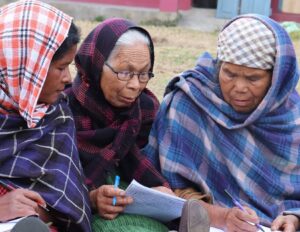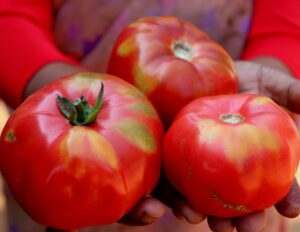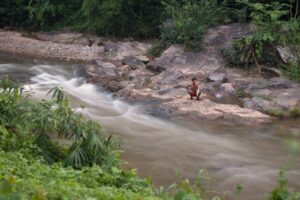Indigenous Peoples’ Food Systems can be a viable solution for alleviating Poverty and achieving Zero Hunger in Hilly and Coastal Regions: Pius Ranee’s voiced at the International Conference on Sustainable Development in Hills and Coastal Ecosystems.
The International Conference on Sustainable Development in Hills and Coastal Ecosystems was organised by the M S Swaminathan Research Foundation at Chennai from the 7th-9th August 2022. Organised in lieu with UN’s declaration of the year 2022 as “International Year of Sustainable Mountain Development (IYSMD)” and “International Year of Artisanal Fisheries and Aquaculture” (IYAFA), the event also marks/marked the foundation day of the MSSRF. Various UN missions in India, International NGOs, Departments and Ministries of the Govt. of India, NGO networks and Farmers Networks participated in the three day long International Conference.
The conference also saw the participation of NESFAS’ Executive Director, Pius Ranee, as one of the panellists for the session, “Challenges in Achieving Sustainable Development Goals SDG 1 (Poverty) and SDG 2 (Zero Hunger) in Hilly and Coastal Regions.” He spoke about the resilience of the Indigenous Peoples’ Food Systems of the Indigenous Communities of North East India. Pius highlighted the role that NESFAS has played towards defending and strengthening Indigenous Peoples’ Food Systems (IPFS); especially in Meghalaya and Nagaland.
Pius’ speech emphasised on the REC funded NESFAS’ project “No One shall be Left behind Initiative’ ‘ that was designed to combat malnutrition in 102 villages in Meghalaya and 28 villages in Nagaland. The project was based on a holistic programme dealing with four major components: Production, Consumption, Livelihood, and Innovation.
“NESFAS’ idea is to change the mindset of local communities to appreciate their own local food and try to expand or revive such unique food species even within their own small kitchen gardens. We also need to tap into local knowledge and combine it with the contemporary knowledge to solve issues in areas like soil, seed, and pest. For this, we have Agroecology Learning Circles; a platform for farmers to come together and exchange ideas and solutions that will bring benefit to their own farming systems.” Pius Ranee commented during his speech.
He stressed that the significance of the project also lay in the participation of youths and how programmes such as Agrobiodiversity (ABD) Walks help in the seamless passage of knowledge of wild edible plants from traditional knowledge holders to the younger generation. Pius also mentioned how NESFAS have worked extensively with various schools for the inclusion of different locally sourced ingredients in the Mid-Day-Meals of students. To ensure a balanced intake of food groups, Professional Chefs are often consulted for the menu, he said. These chefs also conduct cooking demonstrations where they show how to cook innovative dishes out of locally available ingredients.
Pius shared the impact of NESFAS’ work which was monitored through an app called ‘NESFAS NUTRI APP’ following the 10 food group principle of FAO with the app covering 1976 households: “The results show that we have been able to promote the importance of local food systems including foraged food like wild edibles plants and fruits which are part of our shifting cultivation.” He stated.
Furthermore, he shared the findings of the food insecurity study conducted by NESFAS under FAO guidance in 18 Jhum cultivation villages from Meghalaya and Nagaland; “The level of severe food insecurity in these 18 villages was found to be only 11% as compared to 40% for South Asia”.
“All these results point to the fact that we need to look at Indigenous Peoples’ Food Systems as being nature positive. These are solutions that the world needs to support as we face increasing climate change and food insecurity” Pius concluded.



